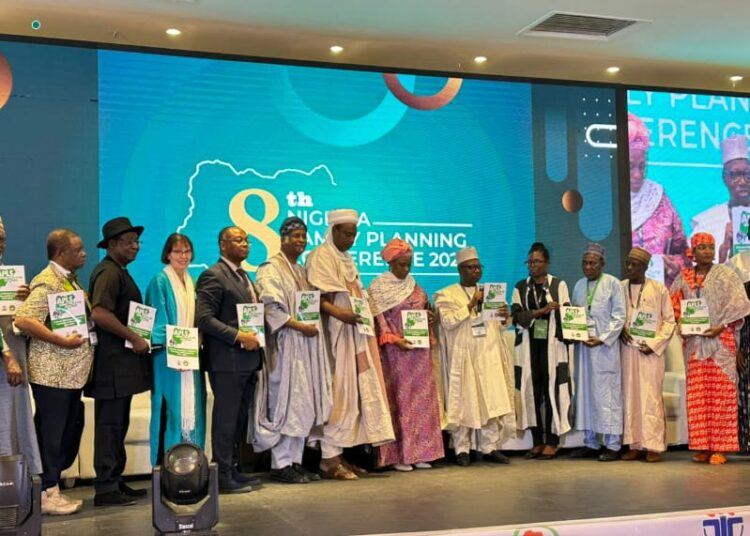Stakeholders at the eighth Nigeria Family Planning Conference 2024 in Abuja have emphasized the critical role of family planning (FP) services in fostering national development by addressing population growth and reducing pressure on resources.
Speaking at the conference themed “Sustaining Commitments for Family Planning within the Nigeria Health Sector Renewal Investment Initiative, Advancing Progress Towards Achieving FP2030 Goals,” Dr. Isaac Adewole, former Minister of Health and Chairman of the event, underscored the importance of FP in strengthening Nigeria’s health system and advancing socioeconomic progress.
“Effective family planning reduces maternal and infant mortality, improves quality of life, and empowers women economically,” Adewole stated, noting that 19% of married women in Nigeria have unmet contraceptive needs, exacerbating health risks.
Adewole called for increased domestic funding, strengthened supply chains, and the integration of FP into essential services.
He also urged stakeholders to prioritize youth-friendly FP services, as young people account for over half of Nigeria’s population.
“We need to provide adolescents with accurate information and accessible resources to make informed reproductive choices. Collaboration with development partners, civil society, and the private sector is vital to achieve FP2030 goals,” he said.
Global and Local Partnerships
Uche Amaonwu, Country Director of the Bill and Melinda Gates Foundation, echoed these sentiments, emphasizing that family planning transcends health.
Represented by Rodio Diallo, Deputy Director for Family Planning at the Foundation, Amaonwu highlighted FP’s transformative potential for socioeconomic growth, gender equity, and sustainable development.
“By empowering individuals, especially women and girls, to make informed reproductive decisions, FP enhances education, productivity, and quality of life,” he said, advocating for culturally sensitive approaches and community engagement to address social norms.
He noted that every dollar invested in FP generates up to $120 in health and socioeconomic benefits.
Dr. Salma Ibrahim Anas, Special Adviser to President Bola Tinubu on Health, acknowledged progress in promoting FP but said significant challenges remain.
“To address these issues, we need strategies tailored to Nigeria’s unique context, with a focus on education and awareness,” she said, advocating for homegrown solutions and inclusive dialogues with all stakeholders.
The conference, organized by the Association for the Advancement of Family Planning in collaboration with the Federal Ministry of Health and Social Welfare, has provided a platform for stakeholders to renew commitments and strategize on achieving Nigeria’s FP2030 goals.
Stakeholders emphasized that FP is central to Nigeria’s health sector renewal and development agenda.
“Together, we can transform family planning into a cornerstone of sustainable development,” Adewole concluded.
We’ve got the edge. Get real-time reports, breaking scoops, and exclusive angles delivered straight to your phone. Don’t settle for stale news. Join LEADERSHIP NEWS on WhatsApp for 24/7 updates →
Join Our WhatsApp Channel










